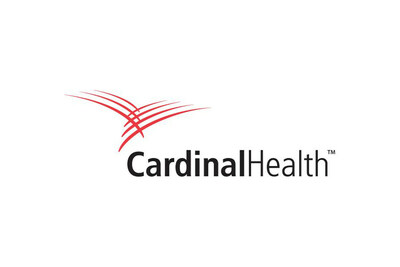Cardinal Health annual research report examines milestone year in biosimilars
- None.
- None.
Insights
The emergence of biosimilars has been a transformative force in the pharmaceutical industry, offering an alternative to more expensive biologics. From a market research perspective, the increased availability of biosimilars is poised to disrupt the current market dynamics by introducing competitive pricing and potentially leading to a reduction in healthcare costs. The adoption of biosimilars, as indicated by the report, seems to be influenced by factors such as provider familiarity and payer preferences, which could shape market trends and influence stock valuations of companies involved in their production and distribution.
Furthermore, the report's suggestion that biosimilars could improve healthcare system sustainability aligns with a broader industry trend toward cost containment and value-based care. As biosimilars gain traction, we may observe a shift in investment towards companies that are able to effectively manage the challenges of biosimilar inventory and navigate the evolving payer landscape. This shift could have significant implications for the stock market, particularly within the biotech and pharmaceutical sectors.
The legislative developments mentioned in the report are critical to understanding the future trajectory of biosimilars. Legislation can either catalyze or stifle the growth of the biosimilars market, depending on the nature of the policies enacted. For instance, policies that favor biosimilar adoption through incentives for prescribers or regulations that streamline the approval process can accelerate market penetration and drive down drug costs. Conversely, stringent regulations or strong biologic patent protections could hinder biosimilar entry and maintain high drug prices.
The report's emphasis on legislative developments suggests that stakeholders should closely monitor policy changes as they could have far-reaching implications for the industry. This includes potential impacts on the stocks of companies that produce originator biologics or biosimilars, as well as on healthcare providers and payers.
Analyzing the financial implications of biosimilars, it is evident that their increased adoption could lead to significant cost savings for the healthcare system. For pharmaceutical companies, this represents a double-edged sword: on one hand, companies that are early entrants into the biosimilars market may benefit from first-mover advantages and capture substantial market share; on the other hand, companies with lucrative biologic patents may face revenue erosion as biosimilars gain market acceptance.
The report's insights into market growth and adoption barriers are essential for evaluating the risk and opportunity profile of companies in this space. Investors should consider the potential for biosimilars to disrupt existing revenue streams of biologic drugs and the ability of companies to adapt to this change. The impact on stock performance will likely be nuanced, with potential short-term volatility as the market adjusts to new entrants and long-term growth for companies that successfully navigate the biosimilar landscape.
Study reveals impact of dramatic increase in commercially available biosimilars and progress in the areas of patient accessibility and treatment affordability
"It is more important than ever that all stakeholders of the healthcare ecosystem understand the significant benefits biosimilars offer to patients, providers, practices and payers alike," said Fran Gregory, PharmD, MBA, VP, Cardinal Health Emerging Therapies. "The savings generated by biosimilars will play an increasingly important part in creating a balance between funding innovative new treatments and reducing the overall financial burden on the healthcare system. This report offers critical context on this rapidly changing clinical and market landscape, and the role biosimilars will play in increasing the accessibility and affordability of care."
The report examines a year of major developments in biosimilars, offering expert commentary and provider perspectives on a rapidly changing industry landscape. Featuring new research derived from surveys and expert interviews, the report offers new insights into market growth, drivers of biosimilar adoption and remaining barriers to widespread uptake.
With 2024 expected to be a critical year for retina biosimilars, Cardinal Health surveyed providers in ophthalmology to obtain perspectives that may influence adoption while highlighting continued obstacles to wider use of biosimilars. Nearly
In addition to this new research, the report also includes in-depth analysis of:
- The evolving payer landscape
- Emerging best practices for managing biosimilar inventory
- How biosimilars are promoting access and healthcare system sustainability
- The biosimilars product pipeline
The report can be accessed at www.cardinalhealth.com/biosimilarsreport
About Cardinal Health
Cardinal Health is a distributor of pharmaceuticals, a global manufacturer and distributor of medical and laboratory products, and a provider of performance and data solutions for healthcare facilities. With more than 50 years in business, operations in more than 30 countries and approximately 48,000 employees globally, Cardinal Health is essential to care. Information about Cardinal Health is available at cardinalhealth.com.
Media contact: Tori Simmons, Victoria.Simmons@cardinalhealth.com
![]() View original content to download multimedia:https://www.prnewswire.com/news-releases/cardinal-health-annual-research-report-examines-milestone-year-in-biosimilars-302075391.html
View original content to download multimedia:https://www.prnewswire.com/news-releases/cardinal-health-annual-research-report-examines-milestone-year-in-biosimilars-302075391.html
SOURCE Cardinal Health








